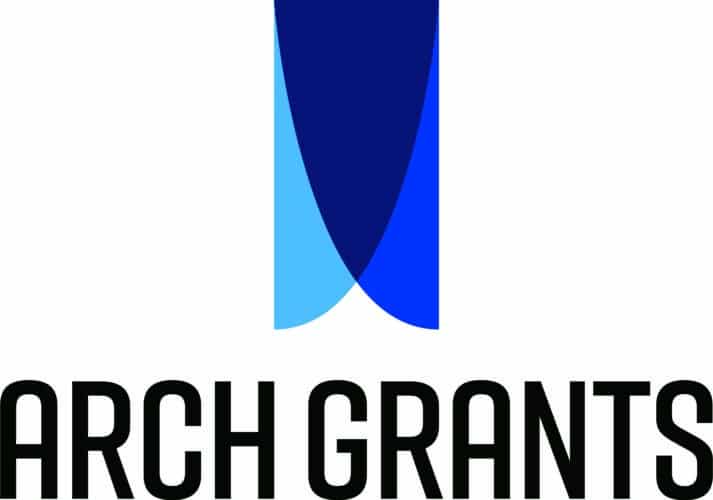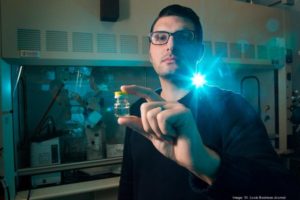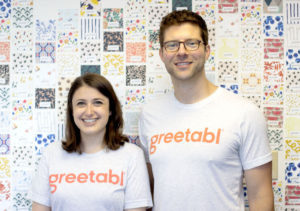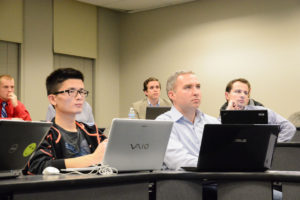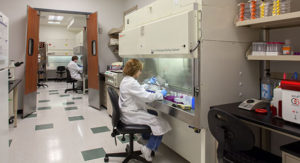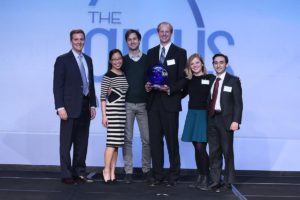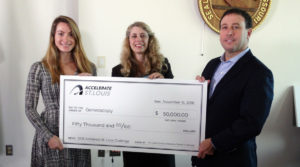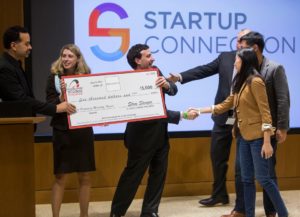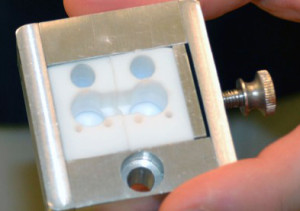
Diagnostics Tool Developer Secures $1M in Funding to Detect GI Disease
-
For life sciences startup Geneoscopy, successful fundraising meant finding creative applications for their technology, accepting and implementing feedback, and lots of stool samples.
-
Thanks in large part to $1 million seed funding in 2018, the St. Louis life sciences startup Geneoscopy is developing next-generation diagnostics for gastrointestinal disease.
-
Siblings Andrew and Erica Barnell, along with partner and CTO Yiming Kang, founded Geneoscopy in 2015 as a superior screening option for colorectal cancer, the second-deadliest cancer in the U.S.
-
Only 58 percent of adults get regular screenings due to apprehension towards the current procedure.
-
“Colonoscopies, the predominant mode of screening, are invasive and require significant time and preparation on the part of the patient,” says Erica, which deters usage.
-
Geneoscopy has developed an at-home test for the biomarkers of colorectal cancer. The test effectively isolates signs of mutations within RNA, DNA’s more temperamental cousin.
-
“Instead of giving everyone a colonoscopy, doctors can give their patients a Geneoscopy test and then do further testing on the patients who are most at risk,” says Erica.
-
The team also learned that the technology is valuable to veterinarians to help detect lymphoma in cats. That application is helping the startup generate revenue as it moves forward with human clinical trials.
Though many startups imagine this day, it’s not every company that makes it to their first million-dollar seed round.
That’s what Geneoscopy, a life sciences startup that develops diagnostic tools for gastrointestinal disease, has finally achieved. Last month, they announced $1 million in seed funding, made by multiple investors including Missouri Technology Corporation and Billiken Angel Network.
The round brings Geneoscopy’s total funding to $1.4 million, validating the promise of their technology and allowing them to take the next step.
Recently, EQ sat down with co-founders – and brother-sister team – Andrew and Erica Barnell to discuss their plans for the capital raise and why poop is the future.
Sampling Stool to Save Lives
Andrew and Erica, along with partner and CTO Yiming Kang, founded Geneoscopy as a superior screening option for colorectal cancer, the second-deadliest cancer in the United States.
“Colorectal cancer kills more than 50,000 Americans every year, yet only 58% of adults get regular screenings,” says Erica. “Colonoscopies, which are the predominant mode of screening, are invasive and require significant time and preparation on the part of the patient.”

The pieces came together after she met a 52-year-old patient with Stage IV colorectal cancer who had never been screened. When asked, the woman explained that she couldn’t take time off for the procedure for fear that she would be fired.
Erica saw parallels between the patient’s case and her own work on biomarkers in the gastrointestinal biome: “I thought, ‘we’re already looking at indicators of disease in stool samples. Why can’t we use this technology to provide an alternative to colonoscopies?’”
This revelation resulted in Geneoscopy, the first at-home test kit for biomarkers of colorectal cancer. Erica presented the idea to her brother, Andrew, an MBA candidate at Wharton, and they launched the company along with Kang in February of 2015.
A Novel Testing Mechanism
What made Erica’s research so novel was the ability to effectively isolate biomarkers – specific signs of mutation – within RNA, DNA’s cousin. Though many DNA mutations cause cancer, all cancer-causing mutations include downstream changes to RNA that can be routinely detected. Therefore, RNA is a preferred method of screening for cancers.
Unfortunately, RNA is more temperamental than DNA, especially in stool samples, where the code is in active stages of degradation. What’s more, gut bacteria from the stool samples can often interfere with RNA analysis.
Geneoscopy’s technology can create a “snapshot’ of cellular conditions that allows for a much more accurate RNA analysis. This technology allows the company to create noninvasive GI diagnostic tools that are more accurate and precise than DNA-based tests.
“Instead of giving everyone a colonoscopy, doctors can give their patients a Geneoscopy test and then do further testing on the patients who are most at risk,” says Erica.
Finding New Applications
Like any biotechnology startup, Andrew and Erica quickly had to contend with the realities of revenue generation.
“[When Erica came to me with this technology], the first question we asked was ‘what’s the biggest thing we can apply this to?’” says Andrew. “Of course, that would be colorectal screening. But we’ll have to do a 10,000-patient clinical trial. We’ll have to submit to the FDA. So the next question was, ‘how can we make money in the meantime?’”
The Geneoscopy team turned to local veterinary scientists to ask if their technology could be applicable. Sure enough, a vet soon approached them with a novel use case:
“Apparently, it’s really difficult to differentiate between inflammatory bowel disease (IBD) and GI lymphoma in cats,” Andrew explains. “We’re developing a test for veterinary applications, which means we’ll start generating revenue as early as this year.”
An immediate revenue source was a great sell for the startup to potential investors, who are often wary about investing in medical companies without firm projections or approval timelines.
“We talked to more than 100 investors over the course of our funding round. The feedback we got led us down the veterinary path, and it’s made us way more successful at raising capital,” says Andrew. “It’s been relatively easy to make this change because it’s an expansion of our core business. We saw the value proposition in this transition right away.”
The Future is Fecal
Thanks to its revolutionary tech, Geneoscopy and its founders are garnering a fair amount of attention on a regional and national level. Last month, Andrew was named to the 2018 Pipeline Fellowship Class, a year-long program with workshops on scaling companies, mentorship, and networking. Erica made the Business Journal 30 Under 30 list in 2016.
The Geneoscopy team is immediately focused on launching its GI test for cats. But the future holds unlimited possibilities.
“There are numerous applications of this platform: screening tests to diagnose digestive diseases, targeted assays to supplement microbiome research, and companion diagnostics to enhance the capabilities of immunotherapies,” Andrew said to the St. Louis Business Journal.
“The future for us includes all of these possibilities.”
Watch the full interview with Geneoscopy on the Bourbon Friday Show below:
You can catch The Bourbon Friday Show on EQ’s Facebook page every Friday at 4:30pm CT.

